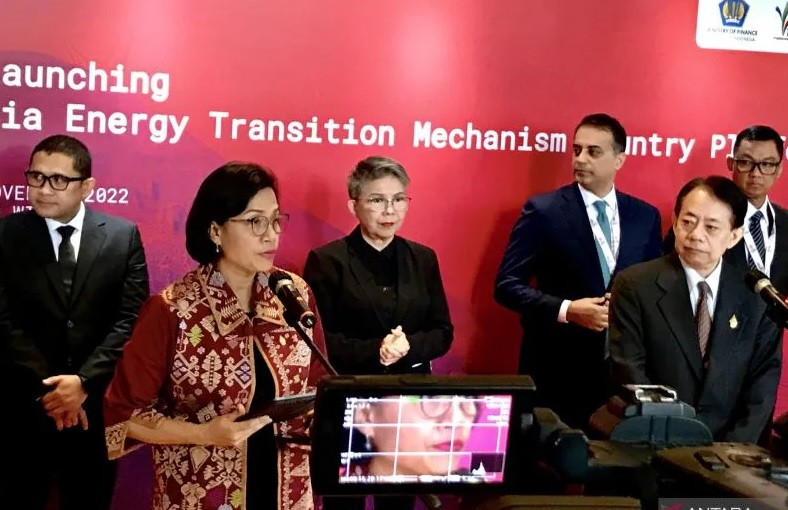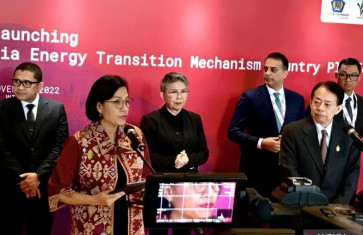Popular Reads
Top Results
Can't find what you're looking for?
View all search resultsPopular Reads
Top Results
Can't find what you're looking for?
View all search resultsJust energy transition through unjust policies
Because Indonesia is an emerging economy, the country has not used fossil fuels to the same degree that many developed countries have.
Change text size
Gift Premium Articles
to Anyone
 Look who’s talking: Finance Minister Sri Mulyani Indrawati (second left) and Asian Development Bank (ADB) president Masatsugu Asakawa (second right) hold a joint press conference on Nov. 14, 2022, after launching the Energy Transition Mechanism Country Platform in Jimbaran, Bali, ahead of the Group of 20 Summit. (Antara/Genta Tenri Mawangi)
Look who’s talking: Finance Minister Sri Mulyani Indrawati (second left) and Asian Development Bank (ADB) president Masatsugu Asakawa (second right) hold a joint press conference on Nov. 14, 2022, after launching the Energy Transition Mechanism Country Platform in Jimbaran, Bali, ahead of the Group of 20 Summit. (Antara/Genta Tenri Mawangi)

The energy transition involves moving toward a more inclusive, sustainable, affordable and secure energy system that provides solutions to global energy‑related challenges, while creating value for business and society and without compromising the balance of the energy triangle: energy access and security, environmental sustainability and economic development and growth.
The World Economic Forum’s 2020 Energy Transition Index (ETI) ranked Indonesia 70 out of 115 countries.
In a 2018 scientific paper, Heffron and McCauley established the JUST conceptual framework to measure changes to policies and laws related to the energy transition, based on four categories: Justice, universal, space, and time.
Distributional justice considers the impacts of energy infrastructure development on the area where it is located. While distributional justice is related to the community, procedural justice is related to government regulations and policies implemented in a certain country. Restorative justice is fundamentally oriented toward the restoration of communities damaged by human action or inaction.
Justice has two universal forms. Recognition justice emphasizes that society will be impacted unfairly as a result of energy activities. The cosmopolitan justice approach argues that obligations to justice are not restricted by borders.
The concept of justice in relation to space is concerned with facilities or activities that cause harm to communities or are unevenly distributed, causing some communities to suffer more than others.
Finally, the time metric shows the timeline and speed of the transition.


















